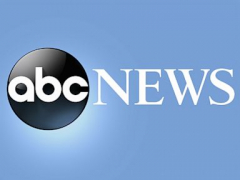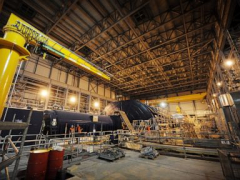The Supreme Court’s decision to end the nation’s constitutional protections for abortion has catapulted businesses of all types into the most divisive corner of politics.
Some companies that stayed silent last month — when a draft opinion by Justice Samuel Alito was leaked to Politico — spoke up for the first time Friday, including The Walt Disney Company, which said it will reimburse employees who must travel out of state to get an abortion.
Facebook parent Meta, American Express, Bank of America and Goldman Sachs also said they would cover employee travel costs while others like Apple, Starbucks, Lyft and Yelp reiterated previous announcements taking similar action. Outdoor clothing maker Patagonia went so far as to post on LinkedIn Friday that it would provide “training and bail for those who peacefully protest for reproductive justice” and time off to vote.
But of the dozens of big businesses that The Associated Press reached out to Friday, many like McDonald’s, PepsiCo, Coca-Cola, General Motors, Tyson and Marriott did not respond. Arkansas-based Walmart — the nation’s largest employer with a good portion of its stores in states that will immediately trigger abortion bans following the Friday’s Supreme Court ruling — also kept quiet.
Meanwhile, the Business Roundtable, an organization that represents some of the nation’s most powerful companies, said it “does not have a position on the merits of the case.”
A lot is at stake for companies, many of which have publicly pledged to promote women’s equality and advancement in the workplace. For those in states with restrictive abortion laws, they could now face big challenges in attracting college-educated workers who can easily move around.
Luis von Ahn, the CEO of the language app Duolingo, sent a tweet Friday aimed at lawmakers in Pennsylvania, where the company is headquartered: “If PA makes abortion illegal, we won’t be able to attract talent and we’ll have to grow our offices elsewhere.”
The ruling and the coming patchwork of abortion bans also threatens the technology boom in places like Austin, Texas as companies like Dell — which was already becoming more flexible to remote work because of the tight labor market — struggle to recruit newly minted tech graduates to their corporate hubs, said Steven Pedigo, a professor who studies economic development at the University of Texas at Austin.
“Rather than stay in Austin, do you go to New York or Seattle or the Bay Area? I think that’s a real possibility,” Pedigo said. “It becomes much more challenging, particularly when you’re looking at a young, progressive workforce, which is what technology workers tend to be.”
Emily M. Dickens, chief of staff and head of government affairs for the Society for Human Resource Management, said in a statement that nearly a quarter of organizations in a recent poll agreed that offering a health savings account to cover travel for





